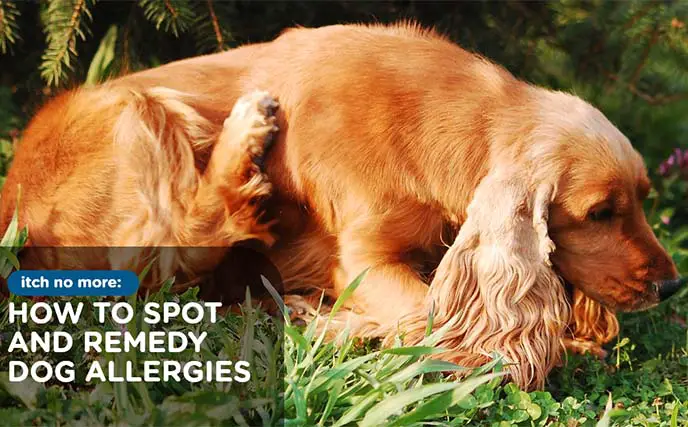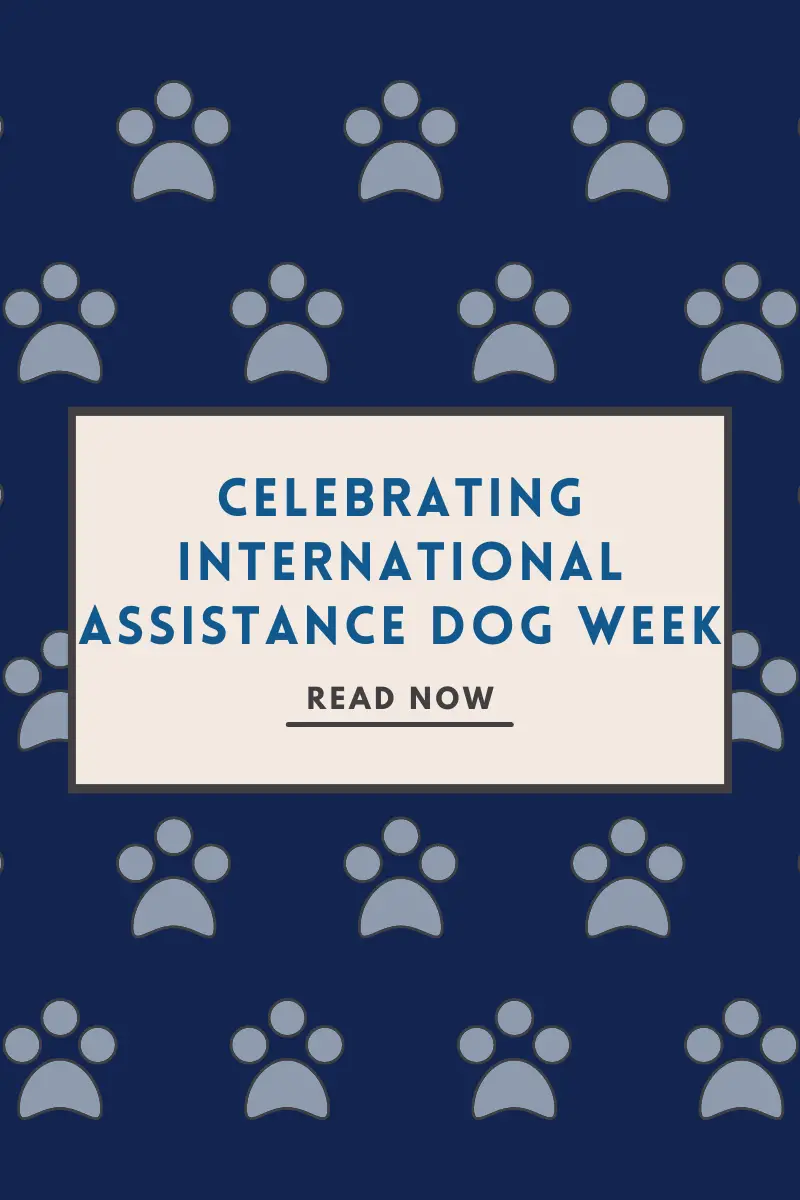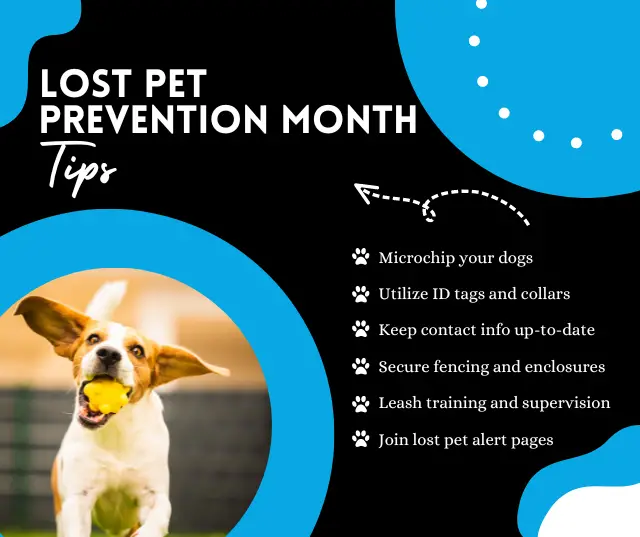Have you ever gone out for a walk with your dog and then the moment you get home they suddenly are behaving differently? Rubbing their face against the carpet or floor, excessive scratching, swelling or red skin, a sudden lack of energy, and even vomiting! If you have, then you’re probably familiar with dog allergies. If you haven’t, keep reading to add this to your dog safety knowledge!
Every responsible dog owner wants the best for their dog partners. From nutrient-filled meals to proper health care, dogs are treated with utmost care. As much as possible, we want them to be safe from any type of harm, but sometimes, there are things that happen beyond our control. The only thing we can do is to try to either prevent it or remedy it.

We are here to give you a guide on ways you can identify seasonal allergies in dogs, as well as tips for getting your pet back up and running should they fall under the weather.
It’s possible for dogs to get allergies?
Yep! Just like human beings, dogs experience allergies too. It is possible. Seasonal and environmental allergies can cause discomfort and be a problem for dogs. When dogs have allergies, the reaction can range from mild to extreme. Normally, the immune system protects your dog from infection and disease, but when it comes to allergies the immune system can actually be harmful to the body.
According to VCA Hospitals, allergies are quite common in dogs of all breeds and backgrounds. Most allergies appear after the pet is six months of age, with the majority of affected dogs over age one or two.

How can I spot the allergies?
Since dogs can’t really tell you what they’re feeling, it’s up to you, a pet parent, to look for the signs. Identifying these symptoms as allergies isn’t always easy, but that is why we’re here to guide you!
Here are things to watch out for during allergy season:
- Watery eyes
- Runny nose
- Sneezing
- Itchy flaky skin (pruritus)
- Hair loss
- Itching
- Ear infections
- Shaking their head and scratching one or both ears
- Smelly and/or “dirty” ears
- Licking of the paws
- Patchy skin or skin irregularities
What are the possible causes of dog allergies?
A very large number of substances can act as allergens, especially in countries where the season changes. Environmental allergens, such as dust, pollen, and mold, can cause atopic allergic reactions or atopic dermatitis. In most cases, these allergies are seasonal, so you may only notice your dog itching during certain times of the year. As mentioned, we’re focusing on seasonal allergies, but there are various potential allergy triggers such as food intolerance, ticks, and more.
The common seasonal allergy triggers are not far from those that affect humans, in fact, they’re quite similar. These are pollen, grass, weeds, fungi, excessive heat, and different elements found in rivers or lakes.
It is also important to note that what might cause an allergic reaction doesn’t tend to change with age, but certain breeds are more predisposed to allergies than other breeds.
What dog breeds are prone to allergies?
Each dog can experience allergic reactions, but these are the breeds that are more likely to experience them in their dog lives:
1. Boxer

They are particularly sensitive to dog food with a high grain content, including corn or wheat. They are also prone to allergies caused by trees, weeds, pollen, and dust.
2. Bichon Frise

They often experience contact allergies that can cause skin problems due to their sensitivity to flea bites and airborne allergens from grass, flowers, trees, and dust.
3. American Pitbull Terrier
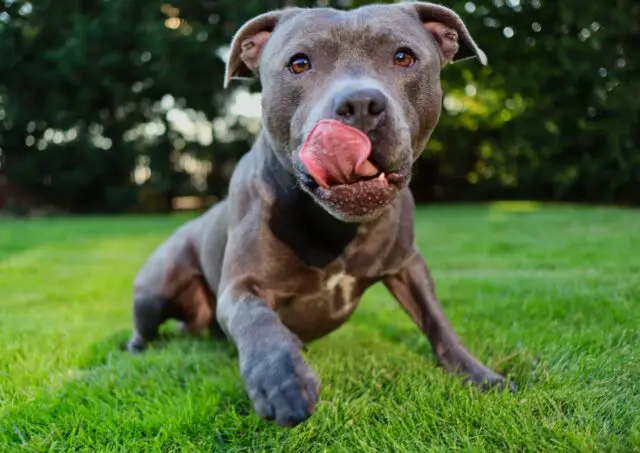
Their allergies are often caused by environmental allergens including fleas, pollen, grass, and dust. While their common food allergens include beef, wheat, rice, and corn.
4. Cocker Spaniel

The allergies they experience are caused by typical inhalants like pollen, wool, plastic, copper, synthetics, and sand.
5. German Shepherd

They are more susceptible to food and environmental allergies. In the case of skin allergies, it’s mostly triggered by fleas, food (including beef, chicken, corn, soy, dairy, and wheat), and pollen.
6. Golden Retriever

There are four major forms of allergies for the golden retriever: flea, canine atopic dermatitis, food, and contact. The irritants that affect the skin include pollen, dust, fleas, mold, grasses, and weeds.
These are just six of the most common dog breeds that are prone to experiencing allergies. If your dog isn’t one of these breeds but is experiencing symptoms, do not worry it’s completely normal! Just make sure to provide them with the proper care.
How do I remedy dog allergies and soothe hot spot irritations?
With environmental/seasonal allergens it can be difficult to identify and remove triggers, but for non-extreme cases, these are things that you can use and do to help remedy your dog’s allergy :
1. Give them a proper bath with warm water
2. Make sure to not bring them out until they’ve fully recovered.
3. Keep them hydrated.
4. Clean your space and the dog area to avoid further irritation.
5. Have an ear and eyewash that is safe for your pet on hand, preferably one with a long shelf life.
Nixall® Eye & Ear Wash can do the trick. It gently washes away dirt and debris. Soothing your pets’ eyes and relieving the symptoms of “Itchy.” The “No-Sting” formula will make you a hero in your pets’ eyes, and it will remove tear stains too. It also helps get rid of ear odor, inflammation or redness, and wax buildup.
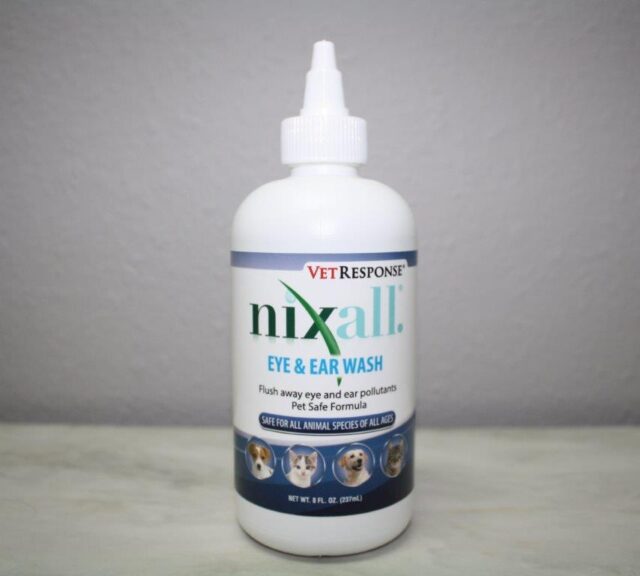
Another product you’ll need is a daily groomer, one that can be used to keep your pet clean and in tip-top shape even without a bath. We recommend VETRESPONSE® Skin Coat Grooming Solution. It helps with hot spots, and dry, itchy skin.
It functions as a deodorizer for healthier, shinier skin and coat and can get rid of red inflamed spots on the skin. It works to moisten the skin, maintaining a healthy and shiny coat for your cat, dog, or equine animal.
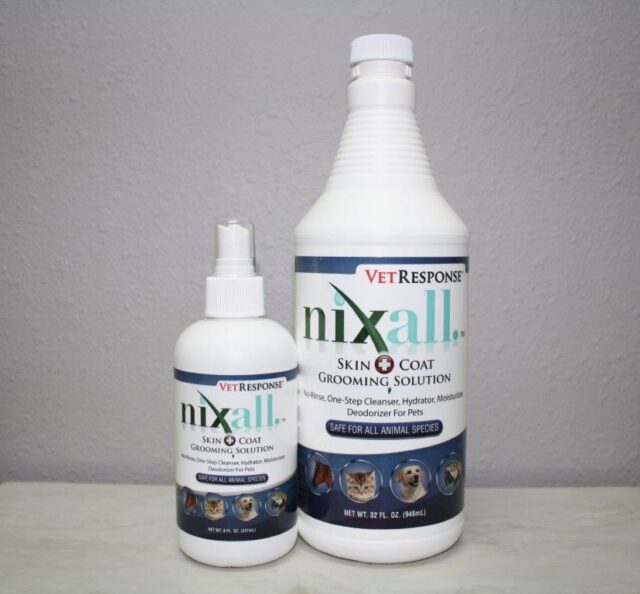
Both products are used and recommended by veterinarians, can last up to 18 months, are made of natural ingredients, are safe if licked by pets, do not contain alcohol and VOCs, and the best part of it all — it won’t break the bank.
Is there a way to permanently prevent dog allergies?
If you’re looking for a cure, we’re going to have to tell you that there aren’t really cures for these. Dogs will experience allergies throughout their lives, and we can only do our best to remedy and prevent them as mentioned above.
Being a responsible dog parent means having the proper care products at home and also knowing when to bring your pooch to the vet. If your dog has ongoing symptoms, you notice a change in their behavior, or you just feel concerned, we always recommend taking your little one to the vet.
It may be overwhelming, but don’t worry. All you need is to follow our tips and use our guide!

